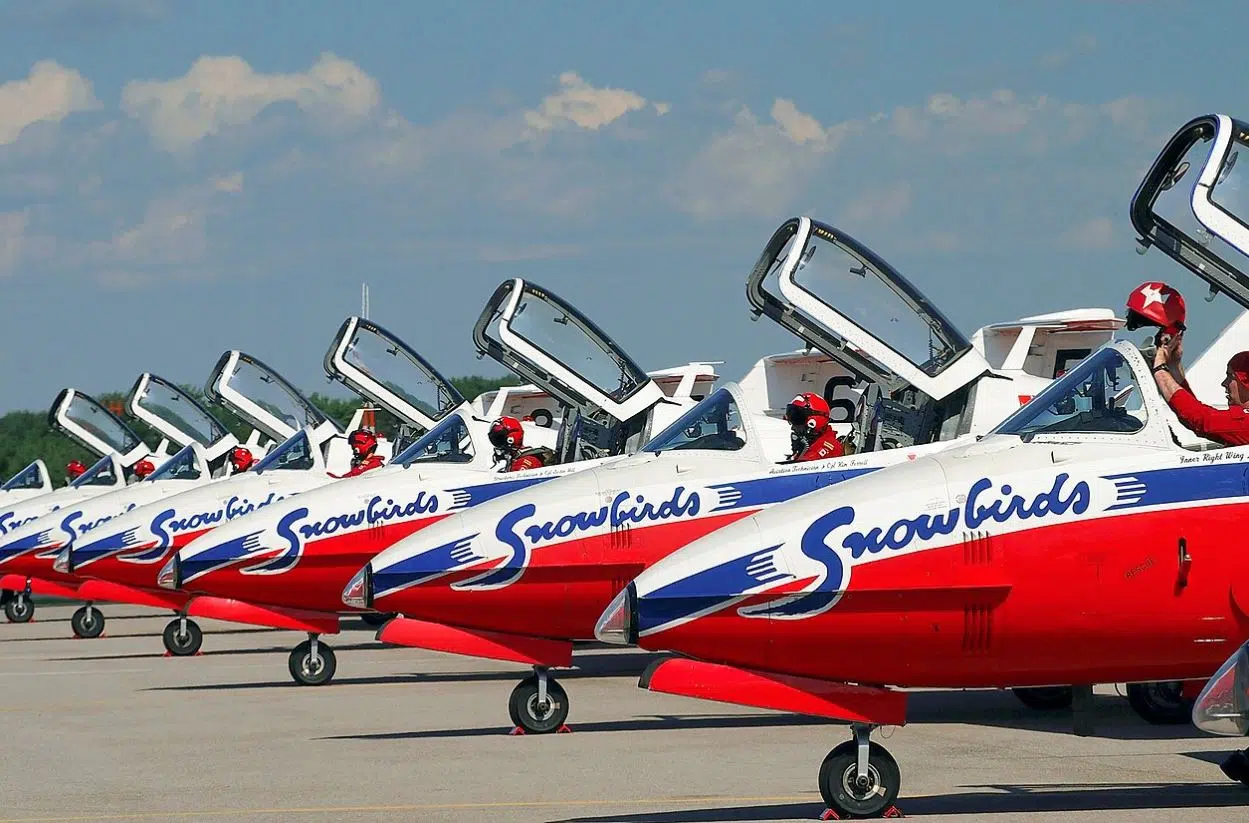
As the Snowbirds prepare to leave Kamloops after the fleet was grounded following a crash on May 17, an Air Force spokesperson says it does not mean the investigation is over.
Speaking on the NL Morning News, David Lavalee says they are confident in the risk analysis process that was done over the past few months while the fleet was on an operational pause.
“That allowed us to put some measures into place that will allow the fleet to resume operations and that’s where we are now,” he said.
“The risk analysis looked at the aircraft systems and the situations and certainly, we don’t ever want to find ourselves in a situation where our people have to eject. What we are trying to do is mitigate the risk down to a level where they don’t actually have to do that, and that’s what we’ve done to allow the fleet to resume flying
A preliminary report suggested that a suspected a bird strike likely caused the crash that killed Capt. Jenn Casey and sent the pilot, Capt. Richard MacDougall to hospital.
Lavalee says the Snowbirds are focusing on getting their pilots back up to speed before the planes depart for Moose Jaw. Once there, the team will focus on training for next season.
“We implement what’s called an operational pause [after an incident]. It’s basically an Air Force term that means the fleet will not fly until we know enough about what happened, or about the risks that we are looking at to ensure that we can take some measures to mitigate that risk down and allow the fleet to resume operations,” Lavalee added.
“And that is exactly what’s happened here with the Tutor fleet.”
The Air Force says it will let people know ahead of time before the planes leave Kamloops.















